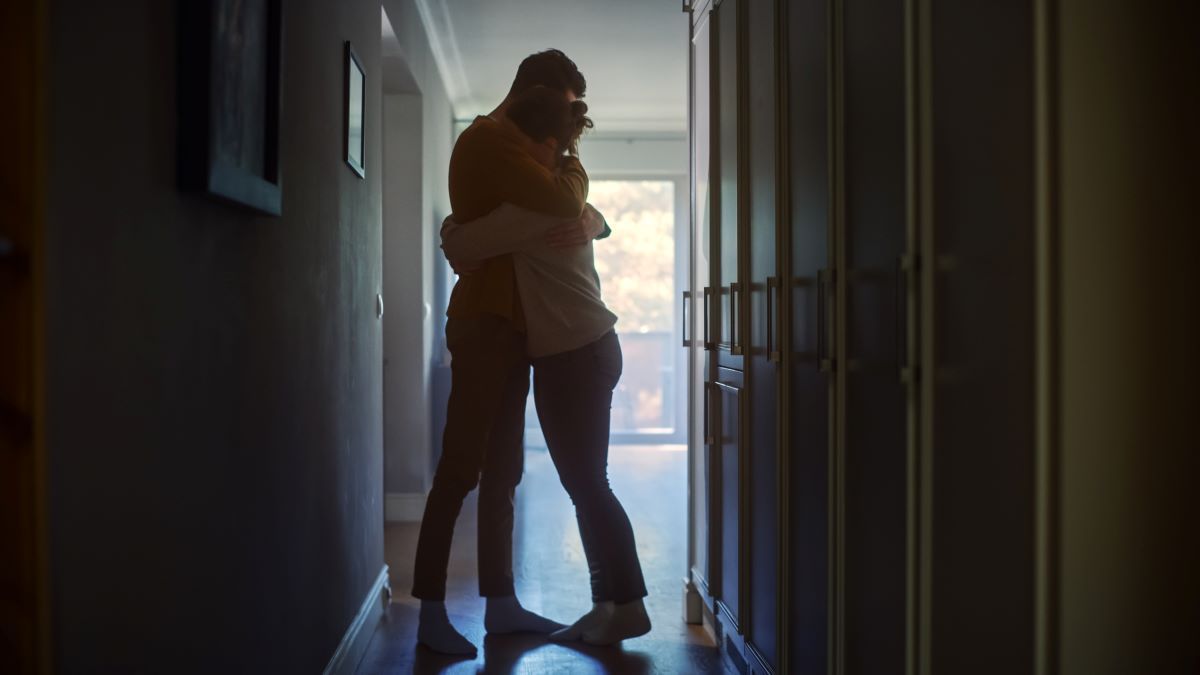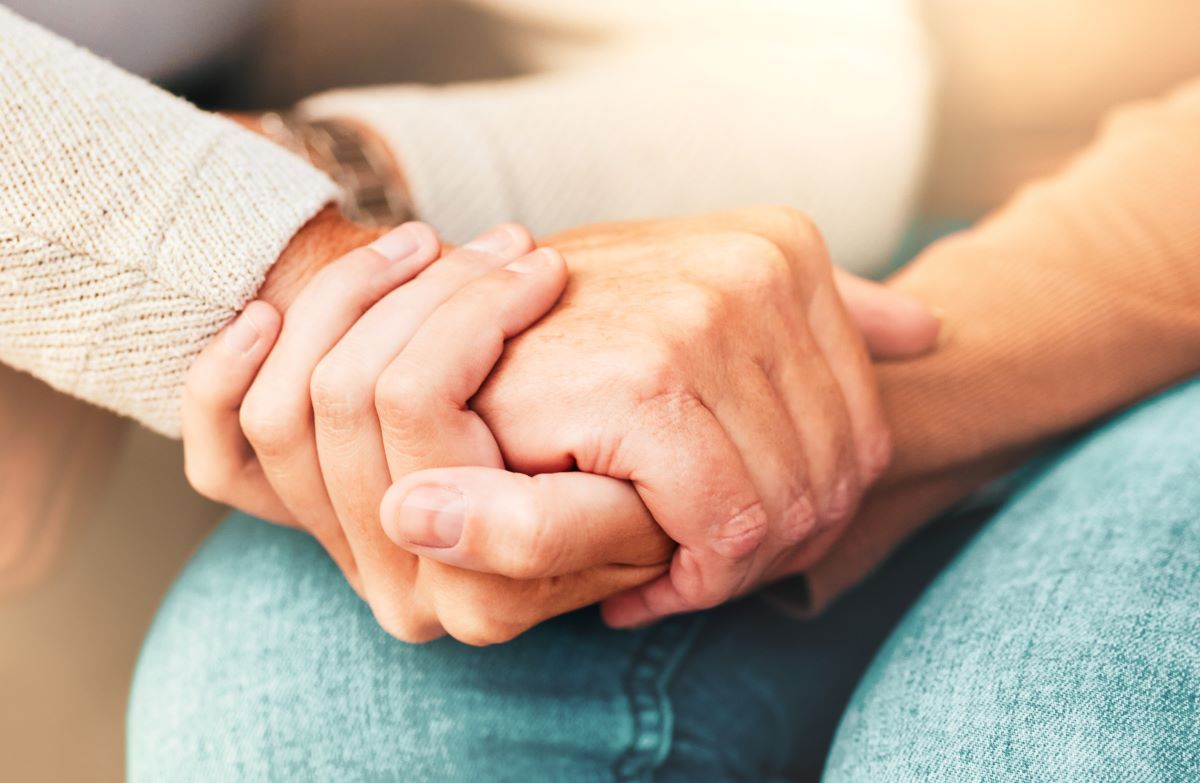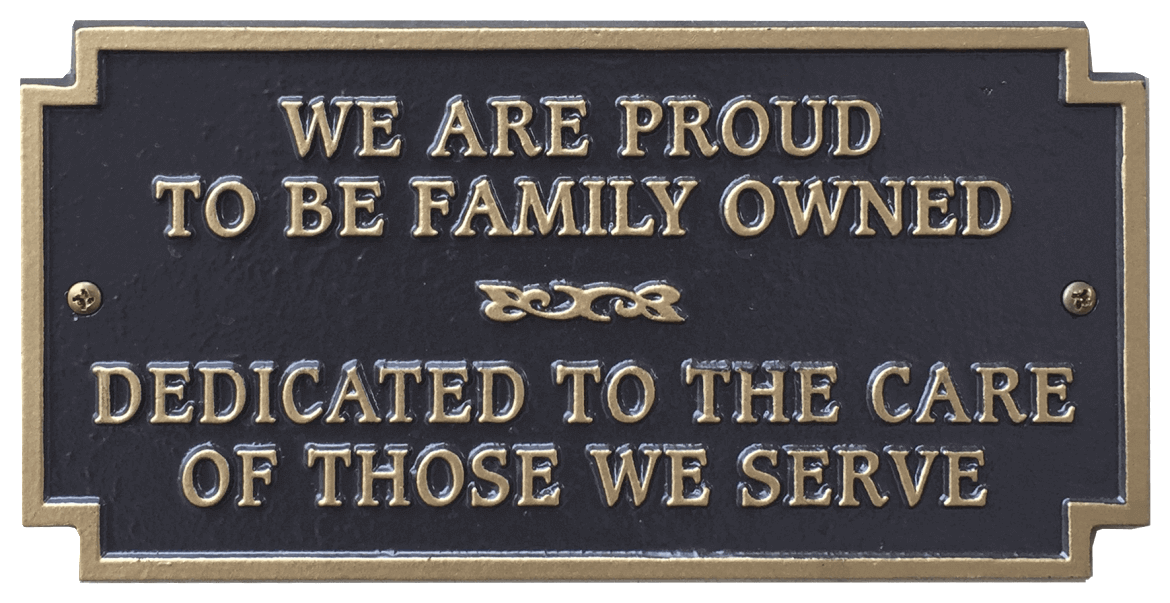The Grieving Process
The Grieving Process
Everyone deals with the death of a loved one in their own way. Even though everyone grieves in their own way, we all go through some of the same feelings and reactions as we try to heal from our loss. Knowing these stages can help you understand that what you're going through is normal and that healing is possible, even if it's hard.

Stage 1
Denial
When you are in denial, it is normal to feel like you can't believe that your loss is real. Putting painful thoughts aside and trying to accept the tragedy is a normal part of grieving and can even help protect you. Denial helps you deal with the reality of your loss in small doses, so you only take in what you can handle emotionally at any given time.
As you get stronger, it becomes easier to accept the truth of the situation, and you start to heal slowly. The protective shield of denial begins to diminish, allowing deeper emotions to emerge and seek recognition.
Stage 2
Anger
There are times when you may feel very angry and resentful. This means that you are now in the second stage of grief. You might look for someone or something to blame, like yourself, God, doctors, things that are out of anyone's control, or even the person who died for leaving you behind.
Please don't feel alone or ashamed if you have these thoughts and feelings. When you lose someone close to you, it's normal to feel this way a lot of the time. It's often easier to feel angry than the deep sadness underneath. It's important to find a safe way to show your anger as part of the healing process.


Stage 3
Bargaining
You might feel a lot of guilt about your loved one's death at this point. You might think that there was something you could have said, done, or noticed that would have stopped it from happening. You might try to make deals or negotiate with God or a higher power in the hopes of changing the outcome or going back in time.
Don't let "if only" statements or endless hypothetical situations take over your mind, as this will only make you feel more guilty and sorry. Instead, try to see things from a more compassionate point of view. Start to understand the situation in a way that is more logical and accepting, and be kind to yourself as you do this.
Stage 4
Depression
You will probably go through a time when you feel very empty inside and very sad. This is the stage of being sad. It may seem like this phase will never end and the pain will never go away. You might have trouble answering questions about whether life is worth living or what it all means.
It's important to know that being depressed is a normal and common reaction to a big loss. It would be strange if you didn't feel sad after losing someone you care about a lot. It is very hard to fully accept the fact that your loved one will never come back. You need to be patient with yourself and take things one day at a time.
If your feelings of sadness become too strong or last for a long time, please talk to a therapist, grief counselor, or someone you trust for help. Getting help from a professional is a sign of strength, not weakness.


Stage 5
Acceptance
People often think that accepting the death of a loved one means being "completely fine" or "over it." Accepting the loss doesn't mean you're happy about it or that you don't miss your loved one anymore. Acceptance means recognizing the new reality that your loved one is no longer physically present in your life.
This change can be very uncomfortable at first because you might try to keep living as if nothing has changed. Over time, real acceptance helps you get used to this new reality, and you will eventually find peace and learn how to fully engage with life again.
It's normal to feel guilty about moving on or being happy again, but healing doesn't mean forgetting about your loved one or making them less important in your life. You can remember them while still making new friends, having new experiences, and building new relationships.
Grieving is a very personal process that takes time—sometimes a lot longer than we think—and we should let it happen naturally without any pressure or judgment. There is no "right" way to grieve, and these stages don't always happen in the same order. It's normal to go back and forth between stages.

